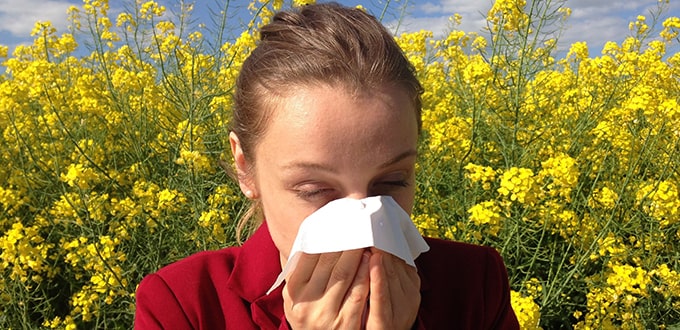
From a die-hard coffee fanatic to the people that just think of coffee and get jittery, there is no denying that coffee, tea or other caffeine fortified beverages play a large part in almost everyone’s lives. But, there is conflicting information on whether coffee, and it’s phytomolecule components are healthful, hurtful, or somewhere in between.
Caffeine
When we think about coffee, the first molecule that comes to mind is usually caffeine. Caffeine is a plant-based stimulant that is found in many foods and beverages and is widely consumed due to a high level of perceived desirable effects. Caffeine can decrease fatigue, enhance athletic and mental performance, and it has been shown to be a good weight loss adjunct, as caffeine decreases caloric intake2. A safe dose of caffeine for most people is 200 mg per day2. Very high doses of caffeine can lead to arrhythmias, hypertension (high blood pressure) and seizures2. In addition, the coffee can impact sleep quality, cause heartburn and raise blood cholesterol. A research group did a study on adolescents and caffeine and the results suggested that caffeine consumption results in sleep disruption by affecting circadian rhythms and sleep homeostasis mechanisms8. Among other things, poor quality sleep can lead to learning difficulties, mood disorders, and risk-taking behaviours8.
Genetics
As mentioned, 200 mg per day of caffeine is a safe amount however, there is so much variation when it comes to caffeine metabolism, that this dose may not be ok for everyone2. The biggest determinant for how well a person can metabolize caffeine is genetics. Most caffeine in the body is metabolized in the liver, by an enzyme called cytochrome P450 1A2 (CYP1A2)5. Differences in the CYP1A2 gene may contribute to differences in enzyme activity5. A single nucleotide polymorphism (SNP) is a simple form of DNA variation and can account for individual differences in caffeine sensitivity3. Sure enough, the rs762551 SNP of CYP1A2 has been demonstrated to slow down caffeine metabolism9.
In addition to genetics, there are a variety of foods that can either speed up or slow down caffeine metabolism when consumed regularly. For example, eating char-grilled beef or grapefruit juice slows down caffeine metabolism, meaning the caffeine stays in your body for longer4. The reason that these foods reduce caffeine metabolism is because they interfere with the CYP1A2 enzyme6. This is the same reason why you aren’t allowed to have certain foods with some medications – it changes how the medication (or caffeine) is broken down. In general, foods that contain large and complex combinations of phytochemicals, such as fruits, herbs, spices, vegetables and teas have the most potential to either induce or inhibit the drug-metabolizing enzyme activity6. However, other dietary factors, such as total protein, energy intake and total carbohydrates can also have an impact on drug-metabolizing enzyme systems6.
Cholesterol
When it comes to raising blood cholesterol, it appears that the lipid or fat content in coffee has a surprisingly large contribution. As opposed to filtered coffee, which has almost no lipid content, unfiltered coffee results in a lipid layer on top of the cup7. This layer, from coffee bean oil, includes two molecules called cafestol and kahweol1,7. Some studies have suggested that the cholesterol-raising depends mostly on the cafestol content, because cafestol increases low-density lipoproteins (LDL – also known as “bad cholesterol”)7. Research has shown that consuming 10 mg of cafestol every day for 4 weeks will increase blood cholesterol by 8-10%7. To put this into perspective, boiled (or unfiltered) coffee contains approximately 6 mg of cafestol per 150 mL, espresso has about 2 mg per single shot, and filtered coffee has less than 1 mg per 150 mL7. Therefore, 10 mg of cafestol is approximately equivalent to having two 150 mL cups of boiled/unfiltered coffee or two double shot lattes a day. If cholesterol levels are a concern, and you like French press or other styles of unfiltered coffee, simply pouring the coffee through a filter can reduce the cafestol amounts and limit the cholesterol raising potential.
Antioxidants
Coffee is rich in antioxidants including chlorogenic acid and caffeic acid. These antioxidants help protect cells against free radicals and oxidative stress and are likely associated with many of the health benefits noted in coffee consumption. The chlorogenic acid specifically has been implicated in reducing Type 2 diabetes risk by reducing glucose absorption in the digestive system10. As well, studies have shown that coffee consumption reduced the progression of some liver diseases11. There is further evidence that coffee consumption may reduce the risk of some cancers, including oral, pharynx, liver, colon, prostate, endometrial cancer and melanoma, but increased the risk of lung cancer12.
Conclusions
Coffee has desirable benefits in moderate doses and the potential health implications in high doses could be serious. While there are benefits that come with caffeine consumption, it can have health implications at high doses2,9. Additionally, there is a large amount of individual variation when it comes to how caffeine is broken down in the body, meaning that some people are much more sensitive to the stimulant effects than others and may suffer from the detrimental side effects of caffeine, even at low doses6,8. It is important to be aware of how much caffeine feels right for your body in order to prevent some of the harmful side effects that come along with it. For most people, in moderation, coffee can be included as part of a healthy diet and life.
If you are curious if you have the genetic marker that slows down caffeine metabolism, contact us for more details!
Disclaimer: This information is provided for educational purposes only. Please consult a medical practitioner regarding the applicability of any opinions or recommendations with respect to your symptoms or medical conditions.
References
- Bragagnolo, N., Rendon, M., Scholz, M. (2018). Physical characteristics of the paper filter and low cafestol content filter coffee brews. Food Research International, 108, 280-285. https://www.sciencedirect.com/science/article/abs/pii/S0963996918302175
- Caldas, E., Neves, D. (2017). Determination of caffeine and identification of undeclared substances in dietary supplements and caffeine dietary exposure assessment. Food and Chemical Toxicology, 105, 194-202. https://www.sciencedirect.com/science/article/pii/S0278691517301655
- Shastry, S. (2009). SNPs: Impact on Gene Function and Phenotype. Single Nucleotide Polymorphism. https://link.springer.com/protocol/10.1007%2F978-1-60327-411-1_1
- The Stronger by Science Podcast, (2019, July 27). Caffeine and health, sex-based caffeine differences, and IPF world champion Natalie Hanson. [Podcast]. Retrieved from http://sbspod.com/episodes/caffeine-and-health-sex-based-caffeine-differences-and-ipf-world-champion-natalie-hanson-Nsi2Ob0O
- Jetter, A., Landolt, H., Urry, E. (2016). Assessment of CYP1A2 enzyme activity in relation to type-2 diabetes and habitual caffeine intake. Nutrition and Metabolism, 13. https://nutritionandmetabolism.biomedcentral.com/articles/10.1186/s12986-016-0126-6
- Harris, R., Jang, G., Tsunoda, S. (2003). Dietary effects on drug metabolism and transport. Clinical Pharmacokinetics, 42(13), 1071-1088. https://link.springer.com/article/10.2165/00003088-200342130-00001
- Ricketts, M. (2007). Does coffee raise cholesterol? Future Lipidology, 2(4), 373-377. https://www.tandfonline.com/doi/pdf/10.2217/17460875.2.4.373
- Carskadon, M. (2017). 2.4 Associations of Caffeine, Sleep, and Behavioral Issues Including Alcohol Use in Adolescents. Journal of the American Academy of Child & Adolescent Psychiatry, 56(10), S304. https://www.sciencedirect.com/science/article/abs/pii/S0890856717309140
- Clifford, M., Penson, S., Robertson, M., Robertson T., Williams, P.(2018). Postprandial glycaemic and lipaemic responses to chronic coffee consumption may be modulated by CYP1A2 polymorphisms. British Journal of Nutrition, 119(7), 792-800. https://www.cambridge.org/core/journals/british-journal-of-nutrition/article/postprandial-glycaemic-and-lipaemic-responses-to-chronic-coffee-consumption-may-be-modulated-by-cyp1a2-polymorphisms/24BF7260F42119567C224EF5E33623AF
- Rob M. van Dam, Walter C. Willett, JoAnn E. Manson, Frank B. Hu (2006) Coffee, Caffeine, and Risk of Type 2 Diabetes. Diabetes Care. 29 (2) 398-403
- Freedman ND et. al. (2009) Coffee intake is associated with lower rates of liver disease progression in chronic hepatitis C. Hepatology. Nov;50(5):1360-9. https://www.ncbi.nlm.nih.gov/pmc/articles/PMC2783828/
- Wang, A., Wang, S., Zhu, C., Huang, H., Wu, L., Wan, X., … Zhao, H. (2016). Coffee and cancer risk: A meta-analysis of prospective observational studies. Scientific reports, 6, 33711. https://www.ncbi.nlm.nih.gov/pmc/articles/PMC5036059/


